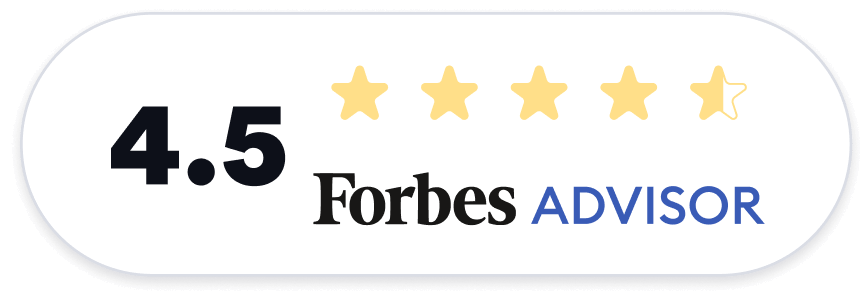Why Do You Need a Seller’s Permit?
A seller’s permit, sometimes known as a sales tax permit, is a type of business license that lets you collect sales tax in the state where you do business.
Stay Compliant
Most states legally require you to have a seller’s permit when conducting business within their borders.
Keep Things Flexible
Choose the optimal permit for your individual business needs, from temporary permits for seasonal startups to long-term permits for evergreen businesses.
Stay Competitive
Give your new or existing business a competitive advantage by unlocking opportunities to make wholesale purchases.
How it Works
Fill out our quick questionnaire and we’ll take care of filing the appropriate paperwork for your seller’s permit.
1. Apply without errors
Your work starts and ends with a simple questionnaire. We’ll take the rest from there - 100% accuracy guaranteed.
2. Collect Sales Tax
A seller’s permit lets you legally collect sales tax, meeting mandatory obligations for businesses selling tangible goods and certain services.
3. Focus on growth
With a seller’s permit, you can stop worrying about tax issues and put that energy into your passion.
Testimonials
Your Business Vision, Our Permit Solution
Leave your permit requirements in expert hands.
• Tailored Solutions: We identify the best seller’s permit for your business and location, encompassing exemptions to resale certificates
• Precision & Speed: Our seller’s permit application service guarantees timely, accurate filings.
• Proven Track Record: Trusted by over 600,000 businesses with 36,000+ five-star reviews.




Seller's Permit FAQs
Still have questions? Call 877-777-0450 or Live Chat with us for real-time support.
A seller’s permit is a business license granted to companies that sell qualifying goods or services that shows the business is registered with the state tax department and can legally collect sales taxes. It might sometimes be referred to as a sales tax permit, retail license, sales and use tax permit, or other name.
The cost of a seller’s permit depends on the state. For example, a California seller’s permit is technically free to get, but you may be required to put down a security deposit. You can double check your state’s department of revenue to learn how much a permit costs in your area.
The process of obtaining a seller’s permit is different in every state, although it typically involves reaching out to a state government agency, typically the department of revenue. Most states will allow you to file completed paperwork electronically.
The list of things you’ll need on hand to apply for a seller’s permit may vary slightly between states, but in general you’ll need:
Your Employer Identification Number (EIN)
Your business name or DBA (doing business as)
Your revenue distribution schedule
Your tax collection start date
The type of products or services you provide
The estimated amount of sales you’ll collect
Usually, online sellers will need a sales tax license for the state they have a physical presence in. Any out-of-state sales will fall under that umbrella. For example, if you sell custom coffee mugs from your home in Texas to a customer in Washington, you only need a tax permit for Texas.
There are some exceptions, especially when you start talking about establishing a place of business “nexus” in another state. In those situations, we recommend talking with a business tax attorney about your business’s unique tax situation.
No, a seller’s permit is not the same thing as a business license. Both are a type of permit, but are different from each other in key ways. A seller’s permit applies to sales taxes only, and a business license is required in certain states, cities, and counties to do business of any kind. Not every business that needs a business license will need a seller’s permit.
Learn more about business licenses.
Some states don’t collect state sales tax and so don’t require companies doing business there to get a seller’s permit. These include Alaska, Delaware, Montana, New Hampshire, and Oregon.
A temporary seller’s permit is a permit given to businesses that only sell for a portion of the year. As with all permits, every state varies.
A resale certificate is different from a seller’s permit. If you buy items as a business to then sell to your customers for resale, you may be able to give a resale certificate to the seller. If the sale qualifies and you give the seller the certificate, you won’t pay taxes on the items.
This is because states generally tax items when they’re sold to the final consumer. Note that some states require you to have a reseller permit, also known as a resale permit, before being able to use a resale certificate.
An LLC (limited liability company) is a business entity formed for liability and tax purposes. A business license lets you legally conduct business. State, local, and federal government agencies issue many different types of business licenses, and your business may need more than one.
Any type of business entity can get a seller’s permit or other business license.
Seller's Permit Resources
Swyft’s Resource Center is the best place to be when you’re looking to understand the need for a seller’s permit or state sales tax ID. Build up your knowledge base with case studies, guides, and articles.
Do what you love. We'll handle the paperwork.
Trusted by over 600,000 businesses since 2015. Start your business with confidence. Affordable. Fast. Simple.
















